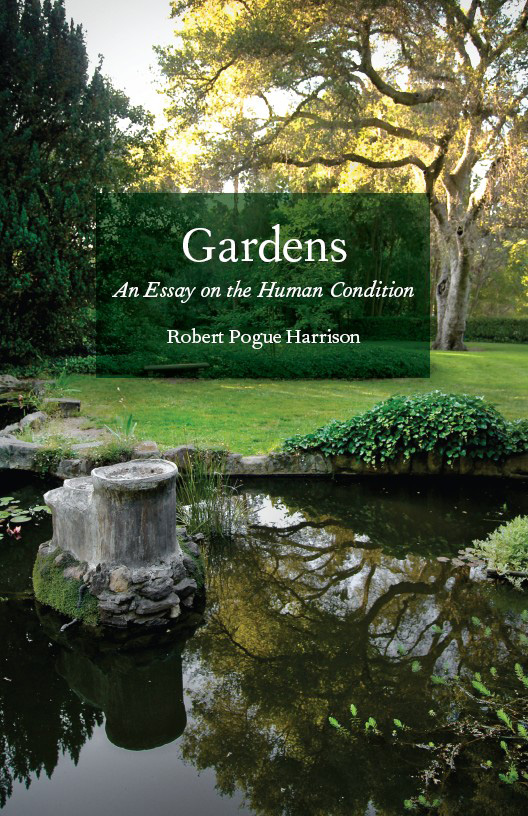Caretaking vs. consuming
 San Francisco Chronicle reporter Susan Fornoff recently talked with Stanford University professor Robert Pogue Harrison about his new book, Gardens: An Essay on the Human Condition. Harrison uses gardens both literally and figuratively for a philosophical exploration from antiquity to the present, showing the connections between horticultural cultivation and the cultivation of the human mind. Fornoff’s engaging article appeared today in the Chronicle and discusses gardening, the culture of consumption, and human happiness:
San Francisco Chronicle reporter Susan Fornoff recently talked with Stanford University professor Robert Pogue Harrison about his new book, Gardens: An Essay on the Human Condition. Harrison uses gardens both literally and figuratively for a philosophical exploration from antiquity to the present, showing the connections between horticultural cultivation and the cultivation of the human mind. Fornoff’s engaging article appeared today in the Chronicle and discusses gardening, the culture of consumption, and human happiness:
Harrison’s … excursion through literature and history revealed a gardening ethic of care that the garden he tends at Stanford University—that of young minds, not plant seedlings—leads him to believe is in some jeopardy.
“This gardening ethic is very much in danger these days, where the emphasis on cultivation has given way to an emphasis on consumption,” says Harrison, asserting that a Stanford student would be more inclined to inspect another’s backyard on HGTV than to investigate one of the many campus gardens.
“We live in a kind of frenzy of consumerism which forgets that the true source of human happiness is not in the consuming but in the cultivation, in seeing something grow, or caring for something that is not yourself. And I don’t know how much we teach the young this ethic of caring for something that is not yourself. Or even caring for things such as an object or a plant. Consumption and cultivation are at war with each other.
If I have any modest expectation for the book, it’s just to try to help add to the awareness that consumerism is not a very promising formula for happiness.”
The Chronicle article is illustrated with some photos of Kingscote Garden on the grounds of Stanford University, a secret treasure of a garden which Harrison imagines as “the quietly palpitating heart of the university.”
Closer to home, Chicago Tribune critic Julia Keller describes herself as “completely besotted” by “this extraordinary, luminous book.” Says Keller:
The author has a knack for elucidating complex thoughts with supple skill, so that you never feel lectured to or belittled. His book is sprinkled with references to classic literature, from the Bible to Homer’s Odyssey to John Milton’s Paradise Lost to Dante’s Divine Comedy, but Harrison is such a wonderful teacher that even works you might not know so well go down easy, like the first swallow of chilled lemonade after a hot afternoon spent yanking weeds.
We also have an excerpt from the book.